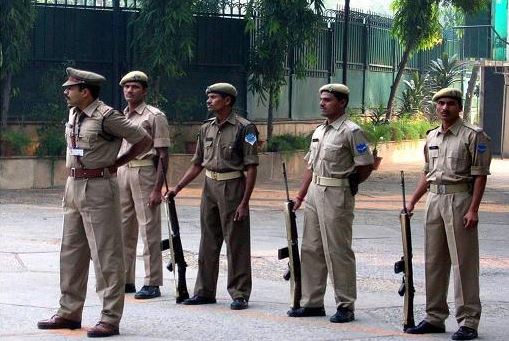NEW DELHI: Amid a tussle with the West Bengal Government over the deployment of forces in Darjeeling, the Union Home Ministry has told state governments that paramilitary forces cannot substitute state police and should be deployed only in emergencies.
In a communication to all states, the ministry also asked all state governments to set up a committee for examining requirements of central armed police forces (CAPF) by keeping in view the internal security, intelligence inputs and availability of central forces in nearby locations.
It said the central government has formulated standard operating procedures (SOPs) for deployment of CAPFs and according to it, the central forces would be able to meet more pressing commitments like guarding borders, fighting insurgency, anti-national operations and in related situations which need immediate mobilisation of forces.
“CAPFs can’t substitute the state police force as their deployment is related to emergency crisis in states for maintaining law and order,” the communication said.
The home ministry’s missive came after the West Bengal government moved the Calcutta High Court and got a stay against the central government’s move to withdraw 700 CAPF personnel from Darjeeling, where an agitation demanding a separate state is on.
West Bengal Chief Minister even spoke to Union Home Minister Rajnath Singh and is said to have protested the central government’s move to withdraw the CAPFs from Darjeeling.
The ministry, in the communication, said the state governments often make requests to the Centre for deployment of CAPFs even for occasions where state should normally be in a position to take all security measures from their own resources by dispatching police and state armed police.
“State governments are reluctant to de-induct CAPFs and keep requesting for extension which should not ordinarily be made unless there are adequate security reasons for their extension.
“Deployment of CAPF companies has a cost associated with it and the state governments are required to pay the charges as laid down in the government policy. Incidentally, there are significant outstanding amount against the states and Union territories,” it said.
Asking the state governments to follow the SOPs, the ministry said each state should constitute a state-level committee under the chairmanship of Additional Director General of Police (law and order), where representatives of Intelligence Bureau and CAPFs at the level of DIG may be co- opted.
“These committees may examine and scrutinise the requirements of CAPFs by keeping in view the internal security, previous scale of deployment, optimal utilisation of state resources, intelligence inputs and availability of CAPFs in nearby locations,” it said.
The recommendation of the committee must be specific and indicate the quantum of CAPFs deployment and duration along with the jurisdictions.
Requests for extension of deployment and increase in the quantum must also be examined by the committee on similar lines.
“Government has sanctioned many India Reserve Battalions in the states and these are not being used optimally by the state governments.
“The purpose of the IRBs scheme is to make the state self sufficient in dealing with the law and order and internal security situation by avoiding being dependent on CAPFs,” the home ministry communication said. (AGENCIES)
Trending Now
E-Paper


